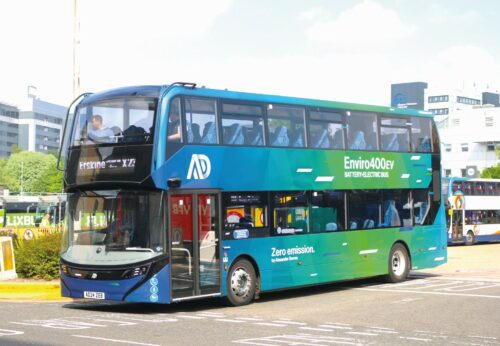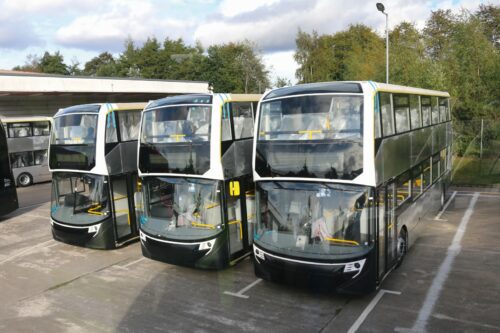
The site could close once existing orders are processed, says the manufacturer, which will consolidate production in Scarborough
Alexander Dennis has announced that it is entering into a consultation on a new strategy for its UK manufacturing operations, which it says results from the completion of a detailed business review and is intended to adjust the business to changing market dynamics.
Under the consultation, the company says it will look at consolidating its UK bus body manufacturing operations into a single site in Scarborough, whilst its Scottish-based manufacturing in Falkirk, which has already been reduced in recent years, would be discontinued and the site closed. The production lines at Larbert would be suspended upon the completion of current contracts, the company says.
The company says that the proposed new structure will lower overall costs, deliver clearer responsibilities and increase efficiency by removing duplicate functions and activities. The statutory consultation places up to 400 roles at the company at potential risk
of redundancy, which represents around 22% of its workforce and 4% of parent company NFI’s global workforce. The firm says it expects a follow-on impact in its domestic supply chain, where it has spent over £1bn in the last five years with its 1,000 suppliers in all parts of the UK.
Alongside the new manufacturing strategy, Alexander Dennis says it is making changes to the structure and management of key customer support teams to drive a clearer focus on quality and reliability, delivery to targets, and communications. President & Managing Director Paul Davies said: “We are proposing a new UK manufacturing strategy to underpin financial sustainability and lower operating costs in the face of changing and challenging market dynamics. Together with our parent NFI Group, we are extremely proud of our UK history and legacy dating back to 1895 and firmly believe in our people, products and business. We must take significant action to drive efficiency to allow our operating model to be competitive. It is extremely regrettable that as part of this, we must place jobs at potential risk of redundancy and propose to cease manufacturing operations at some of our facilities.

building site at Scarborough. RICHARD WALTER
“While stakeholders have been sympathetic of the situation, the stark reality is that current UK policy does not allow for the incentivisation or reward of local content, job retention and creation, nor does it encourage any domestic economic benefit. We have warned of the competitive imbalance for some time and would like to see policy and legislative changes that incentivise the delivery of local benefit where taxpayer money is invested. We strongly believe funding that supports public transport should lead to investment in local jobs, domestic supply chains, technology creation and a recurrent tax base.
“It is our hope that the forthcoming industrial strategy will provide reassurance that there is value in manufacturing within the borders of the UK and we remain hopeful of policy and legislative changes that increase the UK’s focus on support for domestic manufacturing. Our new strategy would allow us to respond appropriately to increase local production if structural changes are made.”

